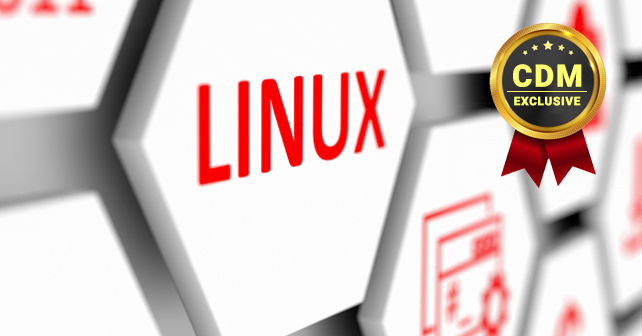If your organization is one of the many that uses Linux operating systems to run key business processes, it’s important to implement the tried-and-true, successfully tested Linux security practices that support critical files from point A to point B, as they transfer from one system to another. One requirement that tends to pop up more frequently for Linux users is file encryption. Linux files must be encrypted seamlessly and quickly in order to prevent critical business data from being at risk while traveling to external networks, trading partners, or a cloud environment.
The good news is, there are several worthwhile encryption solutions that work well for Linux which are currently in the marketplace. Any of these options will do the trick and sufficiently secure important documents, all without taking up too many resources or costing a fortune. Let’s explore the three most popular encryption technologies available for Linux files.
The Best Options
When it comes to protecting sensitive files at rest, Open PGP, GPG, ZIP, and AES are the top contenders out of the various options accessible. Read on to explore how each one operates and determine which method might be the best option for your organization’s encryption needs.
PGP File Encryption & Open PGP
The best place for Linux users to start when it comes to filing encryption is with PGP. Open PGP is currently what’s known as the standard which vendors must follow when delivering PGP-encryption features. PGP file encryption uses asymmetric cryptography, or public PGP keys, to ensure data authentication, as well as help organizations, deal with non-repudiation by allowing recipients to “sign” received files with an embedded PGP signature.
Most Open PGP solutions on the market offer logging, alongside PGP, for encryption activity. This allows for your encryption processes to be tracked for auditing and successfully follow any regulatory or industry requirements your company must comply with. Workflows, one of the robust automation features offered in GoAnywhere Managed File Transfer, can additionally be defined on Linux systems to ensure automatic file encryption and streamline data movement.
GnuPG Encryption
GnuPG (aka GPG) is an open-source alternative to PGP encryption software. It is virtually identical to PGP and Open PGP tools and because it’s open source, it’s supported by a community and can be changed or developed to your liking.
GPG is free and defined by the Open PGP standard. It is frequently used on Linux systems and can also open and decrypt files that have been encrypted by PGP software if your trading partners or third-party vendors us an Open PGP solution.
GZIP and ZIP with AES Data Encryption
You may be able to automate the zipping and unzipping of files that use ZIP and GZIP standards depending on the solution you choose for encryption. This means that when a file transfer is sent or retrieved from a partner, your sensitive Linux files will be automatically encrypted or decrypted without manual intervention.
A product like GoAnywhere MFT can create a ZIP file to package, compress, and encrypt multiple files before a file transfer. ZIP files for Linux can not only reduce disk space, but they can minimize the time it takes to transfer a file, as well as keep related files in a singular location for easy organization. ZIP files can also be password protected. To add an extra layer of security, Advanced Encryption Standard (AES) can be used symmetrically as a form of encryption, in which one password can be used to zip and unzip the file(s).
Choosing a Solution
Deciding what solution is right for your Linux file encryption needs comes with plenty of different factors, typically relying heavily on your business and compliance requirements.
With the significant array of vendors in the marketplace today, it might be worth asking yourself these questions first, before you decide on the best way to secure and protect your data:
- How much budget do you have?
- What other features could you benefit from?
- Do you need to maintain compliance with regulatory or industry requirements?
- How many files do you need to encrypt a week?
- Is this a short-term project? Or is this a permanent solution?
- Do you handle or process sensitive information, like personal data, PHI, or card information?
Care to learn more about how you can improve the security and efficiency of your file transfers? Take a look at our on-demand webinar for some great insight: How to Improve Security & Efficiency for Your File Transfers.
Source: HelpSystems

